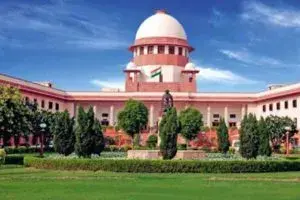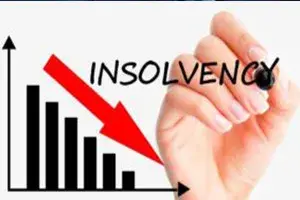Plastic Straws to Be Banned from July 1st, 2022 – In India
Time Limit for Filing of Written Statement under Order VIII Rule 1 Code of Civil Procedure, 1908 is not Mandatory- Supreme Court
Section 18 of Limitation Act applicable to proceedings under Insolvency and Bankruptcy Code, 2016
Plastic Straws to Be Banned from July 1st, 2022- India

By Rupin Chopra and Apalka Bareja
The Ministry of Environment, Forest & Climate Change, via a notification[1] dated February 4th, 2022, has reiterated and publicized the complete ban on the manufacture, import, stocking, distribution, sale and use of single use plastic (SUP) items included plastic straws. The ban comes into effect from July 01, 2022.
Details of Plastic ban
The ban on single use plastics and plastic straws emanates from the 2021 amendment to the Plastic Waste Management Rules, 2016[2]. The said amendment added a new rule[3] that stipulates prohibition on manufacture, import, stocking, sale and distribution of the following single use plastics, including polystyrene and expanded polystyrene, commodities:
- Plastic straws
- Earbuds with plastic sticks
- Plastic sticks for balloons
- Plastic flags
- Candy sticks
- Ice-cream sticks
- Thermocol for decoration
- Stirrers
- Packaging Films of less than 100 micron thickness
- Plastic cutlery
- Plates and cups
Under the rules, the Central Pollution Control Board, along with respective state Pollution Control Boards, have been entrusted with the responsibility to monitor the ban, identification of the violators and imposition of penalties as given under the relevant provisions of Environment Protection Act, 1986. They have also been directed to ensure zero inventory of the aforementioned items by June 30, 2022.
Impact of plastic ban
Impact of the ban can be analysed from two different perspectives, based on its probable effect on the following:
- Manufacturing & Services Sector- the impact of this ban is going to be expansive, affecting many stakeholders in these sectors. From E-commerce giants to FMCG players, both big and small, this ban will undercut everyone’s margins. Packaging costs will increase for E-commerce and logistics players, while the low-cost consumable drinks makers will also feel the heat of this new environmental regulation in the form of compulsion to import environment-friendly paper straws, at least in the short run. Such added costs in the form of high packaging & logistics and probable supply-side constraints vis-à-vis environment-friendly alternatives will also impact the pockets of everyday consumers who might see an increase in the prices of FMCG products. Moreover, an increase in the retail price might also affect the demand side of the whole equation, impacting the revenue of the players.
- Environment & Ecology Sector– on the other hand, such a ban could be a much-needed respite for the deteriorating environmental conditions in India. It is widely known that SUPs take hundreds of years to disintegrate, this fact become exponentially graver given that 43%[4] of all the plastic waste generated in India is SUP. Such SUP waste has been found to be responsible for a myriad of ecological disasters including, but not limited to, micro-plastic pollution in the oceans, soil toxicity, cattle deaths from asphyxiation, etc. the toxic chemicals used for the production of SUPs have been a source of toxicity to the environment and even into our food supply for decades.
Conclusion
This ban presents with itself a spectrum of new possibilities, beneficial in the long run and disruptive in the short run.
On one hand, it will have an immediate disruptive effect on the packaging and manufacturing industries. They will be forced to look for short-term import-based green alternatives. The added costs of such alternatives will cut their way through the pockets of the end consumer. However, this also represents a golden opportunity for said industries, MSMEs, and the startup ecosystem to come up with innovative, and environment-friendly ideas to navigate through this situation. Use and manufacture of bio-degradable, non-toxic alternatives of plastic may gain mainstream recognition and acceptance. The ban is also short in the arm of India’s intended contribution toward sustainable development and cutting down on its carbon footprint.
A diligent and efficient ban on SUP, thus, could be a game-changer with a considerable impact on the lifestyle and consumption habits of Indians and the environment & ecology of India.
[1] No. F. No. B- 17011/7/PWM/2022
[2] CG-DL-E-12082021-228947, The Gazette of India, August 12, 2021
[3] ibid
[4] Single-use plastic: Problems and alternatives, TERI, https://www.teriin.org/infographics/single-use-plastic-problems-and-alternatives (last visited Jun 13, 2022).
Related Posts
Guidelines on Extended Producers Responsibility on Plastic Packaging
PHASING OUT SINGLE USE PLASTICS- CPCB
VIOLATION OF PLASTIC WASTE MANAGEMENT RULES- CPCB ISSUES SHOW CAUSE NOTICE TO F&B COMPANIES
Under Order VIII Rule 1 Code of Civil Procedure, 1908 Time Limit for Filing of Written Statement is not Mandatory- Supreme Court

By Nihit Nagpal and Anuj Jhawar
Introduction
The Hon’ble Supreme Court vide its order dated May 09, 2022 in Bharat Kalra Vs Raj Kishan Chabra[1] has reiterated that the time limit for filing of the written statement under Order VIII Rule 1 of Code of Civil Procedure, 1908 is not mandatory if it is not a Commercial Suit under the Commercial Courts Act, 2015.
Brief facts of the case
A suit for grant of injunction had been filed by the Plaintiff, however the written statement by the Defendant had not been filed within time and the Trial Court had refused to condone the delay (of 193 days). The Hon’ble Delhi High Court had upheld the Trial Court order refusing to condone the delay in filing of the written statement on the ground that there was “no plausible explanation and coherent reason” explaining the delay in filing the written statement.
Time-limit for filing written statement under Order VIII Rule 1 of Code of Civil Procedure is not mandatory
The Hon’ble Supreme Court observed that the suit for injunction filed by Plaintiff in the instant case is not one which is governed by the Commercial Courts Act, 2015. Therefore, the time limit for filing the written statement under Order VIII Rule 1 of Code of Civil Procedure, 1908 is not mandatory in view of the judgment of the Hon’ble Supreme Court in Kailash V. Nankhu & Ors.[2] wherein it had been held that the purpose of providing the time schedule for filing the written statement under Order VIII, Rule 1 of Code of Civil Procedure, 1908 is to expedite and not to scuttle the hearing. The provision spells out a disability on the defendant; it does not impose an embargo on the power of the Court to extend the time. Though, the language of the Proviso to Rule 1 of Order VIII of the Code of Civil Procedure, 1908 is couched in negative form, it does not specify any penal consequences flowing from the non- compliance. The provision being in the domain of procedural law, it must be held to be directory and not mandatory. The power of the Court to extend time for filing the Written Statement beyond the time schedule provided by Order VIII, Rule 1 of the Code of Civil Procedure, 1908 is not completely taken away. Though Order VIII, Rule 1 of the Code of Civil Procedure, 1908 is a part of procedural law and hence directory, keeping in view the need for expeditious trial of civil causes which had persuaded Parliament to enact the provision in its present form, it has been held that ordinarily the time schedule contained in the provision is to be followed as a rule and departure therefrom would only be by way of exception. A prayer for extension of time made by the Defendant shall not be granted just as a matter of routine and merely for asking, more so when the period of 90 days has expired. Extension of time may be allowed by way of an exception, for reasons to be assigned by the Defendant, and also be placed on record in writing, howsoever briefly, by the Court upon being satisfied. Extension of time may be allowed if it is needed to be given for circumstances which are exceptional, occasioned by reasons beyond the control of the Defendant, and grave injustice being likely to be caused to the Defendant if the time is not extended. Costs may be imposed and affidavit or documents in support of the grounds pleaded by the Defendant for extension of time may be demanded, depending on the facts and circumstances of a given case.
Conclusion
In view of the Kailash V. Nankhu & Ors. judgement, the Hon’ble Supreme Court held that delay in filing of the written statement can very well be compensated with costs, but denying the benefit of filing of the written statement absolutely, is unreasonable.
[1] CIVIL APPEAL NO.3788 OF 2022 (@ SLP(C) No.63 of 2022)
[2] (2005) 4 SCC 480
Related Posts
Wage Limit of Ceiling: Cap on PF Contribution

By Rupin Chopra and Apalka Bareja
Introduction
A Provident Fund is an investment jointly established by the employer and the employee to serve as a long-term savings to support the employee upon retirement. All employees earning a salary are eligible for Employee Provident Fund (EPF). However, it is compulsory for employees earning less than or up to Rs. 15,000 to register for EPF. For employees earning more than Rs. 15,000, they may voluntarily register themselves under the EPF Scheme to avail benefits of the Provident Fund. In India, Provident Fund is regulated by the Employees’ Provident Funds and Miscellaneous Provisions Act, 1952 and the EPF Scheme 1952 (framed by the Central Government in exercise of the powers conferred under the Act).
The Central Government has framed an Employee’s Provident fund Scheme, for such establishments or class of establishments to which the Scheme shall apply and therefore a Fund shall be established after the Scheme is framed in accordance with the provisions of the Act.
The Act applies to:
- Every establishment which is a factory engaged in any industry and in which twenty or more persons are employed.
- Any other establishment employing twenty or more persons or such class of establishments as specified by the Central Government.
The Contribution which shall be made by the employer to the Fund shall be twelve per cent (12%) of the basic wages, dearness allowance and retaining allowance if any, for the time being payable to the employees which include employees employed by him directly or through contractor. The contribution by the employee shall be equal to the contribution of the employer.
The employee, if wishes to contribute more in excess of the twelve per cent (12%) of the basic pay, dearness allowance and retaining allowance may contribute excess to the Provident Fund subject to the condition that the employer is not under any obligation to pay over and above his contribution.
As per Paragraph 26 of the EPF Scheme, every employee employed in or in connection with the work or factory or other establishment to which the Scheme applies, other than excluded employee, shall be entitled and required to become a member of the Fund. The employee shall be entitled to becoming member of the provident fund if he or she is a subscriber to the fund maintained in respect of the factory or establishment or any other establishment under the same employer.
The employee and employer have to contribute in equal proportions to the fund. The employer, however, is only obligated to contribute up to the ceiling wage limit which was Rs. 6,500 until August 31, 2014. The Employees Provident Organisation (Ministry of Labour and Employment, Government of India), vide notification dated August 22, 2014 has increased the Provident Fund Limit from Rs. 6,500 to Rs. 15,000 with effect from September 1, 2014.
Accordingly, sub-paragraph 6 of Paragraph 26, EPF Scheme provides that such employee having a pay of Rs 15,000 per month shall be enrolled as a member of the Fund and be allowed to contribute to the fund and the employer shall comply with the statutory provisions in respect of such employee.
As per the proviso to Paragraph 26A, where the monthly pay of such a member (employee) of the Fund exceeds Rs. 15,000, the contribution payable by him and in respect of him by the employer shall be limited to the amounts payable on a monthly pay of Rs. 15,000.
CHANGE OF WAGE LIMIT[1]
| Period | Wage limit per month |
| 01.11.1952 to 31.05.1957 | Rs. 300/- |
| 01.06.1957 to 30.12.1962 | Rs. 500/- |
| 31.12.1962 to 10.12.1976 | Rs. 1,000/- |
| 11.12.1976 to 31.08.1985 | Rs. 1,600/- |
| 01.09.1985 to 31.10.1990 | Rs. 2,500/- |
| 01.11.1990 to 30.09.1994 | Rs. 3,500/- |
| 01.10.1994 to 31.05.2001 | Rs. 5,000/- |
| 01.06.2001 to 31.08.2014 | Rs. 6,500/- |
| 01.09.2014 onwards | Rs. 15,000/- |
Conclusion
An employer in respect of the employee who is a member of the Fund, shall be limited to contribute to the Provident Fund only up to the amount payable on a monthly pay of Rs. 15,000 including dearness allowance, retaining allowance (if any) and cash value of food concession.
The employer cannot be compelled to contribute the amount in excess of the statutory liability[2] i.e. up to the amount payable on monthly pay of Rs. 15,000 including dearness allowance and retaining allowance to the Provident Fund. The statutory limit of Rs 15,000 therefore serves as a cap on the contribution to the Provident Fund by the employer.
[1] WageCeiling
[2] Marathwada Gramin Bank Karamchari Sangathana & Anr. Vs. Management of Marathwada Gramin Bank &Ors. (2011 (9) SCC 620)
Related Posts
India: Nonpayment of Minimum Wages termed as Unconscionable and Unpardonable by the Delhi High Court
Section 18 of Limitation Act is applicable to proceeding under Insolvency and Bankruptcy Code, 2016

By Nihit Nagpal and Anuj Jhawar
The Hon’ble Supreme Court vide its order dated April 18, 2022 in State Bank of India Vs Krishidhan Seeds Private Limited[1] has observed that Section 18 of the Limitation Act, 1963 is applicable to proceedings under the Insolvency and Bankruptcy Code, 2016.
Brief Facts
The National Company Law Tribunal rejected the application filed under Section 7 of the Insolvency and Bankruptcy Code, 2016 by the State Bank of India for initiation of the Corporate Insolvency Resolution Process on the ground of limitation, stating that the Respondent’s loan account had been declared to be an NPA on June 10, 2014, while the proceeding under Section 7 of the Insolvency and Bankruptcy Code, 2016 had been instituted on September 19, 2018, i.e. beyond a period of three years from the date on which the right to take appropriate legal action had accrued. The National Company Law Tribunal further observed that in the decision in the case of V Padmakumar vs Stressed Assets Stabilisation Fund and Another[2], the National Company Law Appellate Tribunal has held that a statement contained in the balance sheet cannot be treated as an acknowledgement of liability under Section 18 of the Limitation Act, 1963. The order of the National Company Law Tribunal was upheld in appeal by the National Company Law Appellate Tribunal.
Section 18 of Limitation Act, 1963 applicable to Insolvency and Bankruptcy Code, 2016 proceedings
The Hon’ble Supreme Court observed that Section 18 of the Limitation Act, 1963 could indeed be held applicable to the proceedings under the Insolvency and Bankruptcy Code, 2016, as also held in Sesh Nath Singh v Baidyabati Sheoraphuli Coop. Bank Ltd.[3] The Hon’ble Supreme Court further observed that an acknowledgement in a balance sheet without a qualification can be relied upon for the purpose of the proceedings under the Insolvency and Bankruptcy Code, 2016, in recognition of the prior decision in Asset Reconstruction Company (India) Limited v Bishal Jaiswal and Another[4].
Conclusion
The provisions of Section 18 of the Limitation Act, 1963 are not alien to and are indeed applicable to proceedings under the Insolvency and Bankruptcy Code, 2016 and an acknowledgement in a balance sheet without a qualification can furnish a legitimate basis for determining as to whether the period of limitation would stand extended, so long as the acknowledgement was within a period of three years from the original date of default, as has been recognized by the Supreme Court in the instant case.
[1] Civil Appeal No 910 of 2021
[2] 2020 SCC Online NCLAT 417
[3] (2021) 7 SCC 313
[4] (2021) 6 SCC 366
Related Posts
APPLICABILITY OF INSOLVENCY LAWS ON PERSONAL GUARANTORS

